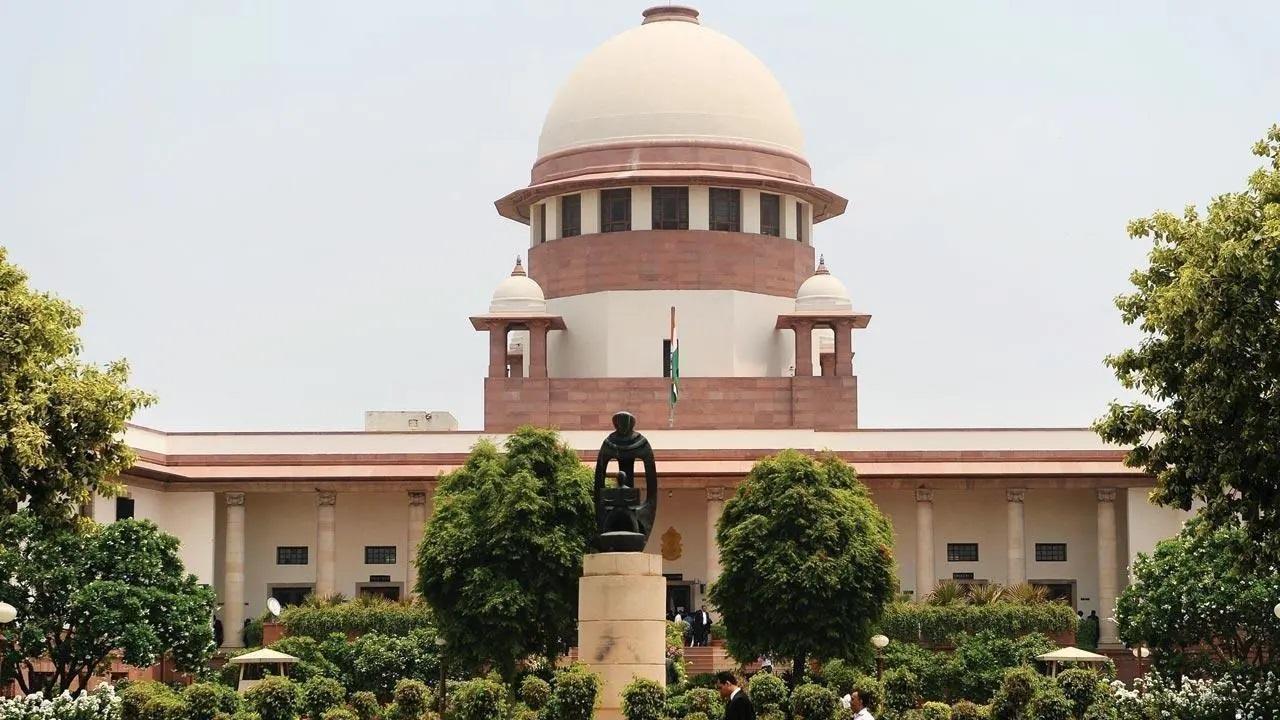A bench of Justices M R Shah and C T Ravikumar imposed a cost of Rs 1 lakh on the petitioner for filing a "publicity interest litigation"

Supreme Court of India. File Pic
India is a secular country and everybody has a right to their religion, the Supreme Court said on Monday while dismissing a PIL seeking to declare late religious figure Sri Sri Thakur Anukul Chandra as 'Paramatma'.
ADVERTISEMENT
A bench of Justices M R Shah and C T Ravikumar imposed a cost of Rs 1 lakh on the petitioner for filing a "publicity interest litigation".
As the petitioner Upendra Nath Dalai started to read from his petition, the bench said, "Suno hum ye lecture sunne ke liye nahi aaye hain (Listen, we are not here to listen to your lecture). Is this a public interest litigation? Aisa kaise ho sakta hai? Jisko jo manna hai wo mane. Apni country me sabko religious adhikar hai.Hum kaise keh sakte hain ki particular sect ko him maane.(How can this be possible? Everybody is free to follow his or her religion. How can we ask people to follow a particular religion)If you want you can consider him as 'Paramatma' (supreme being). Why enforce it on others?" the bench observed.
Also Read: Not here to reopen history: SC junks PIL to remove 'wrong' historical facts on Taj Mahal
The top court was hearing a plea filed by Dalai seeking to declare Chandra as 'Paramatma'.
While dismissing the plea, the apex court said in its order,"India is a secular country and the petitioner cannot be permitted to pray that the citizens of India may accept Sri Sri Thakur Anukul Chandra as 'Paramatma'. This is not a genuine public interest litigation at all and it seems to be publicity interest litigation which deserves to be dismissed with costs."
Chandra was born on September 14, 1888 in Pabna in Bangladesh.
This story has been sourced from a third party syndicated feed, agencies. Mid-day accepts no responsibility or liability for its dependability, trustworthiness, reliability and data of the text. Mid-day management/mid-day.com reserves the sole right to alter, delete or remove (without notice) the content in its absolute discretion for any reason whatsoever.
 Subscribe today by clicking the link and stay updated with the latest news!" Click here!
Subscribe today by clicking the link and stay updated with the latest news!" Click here!







